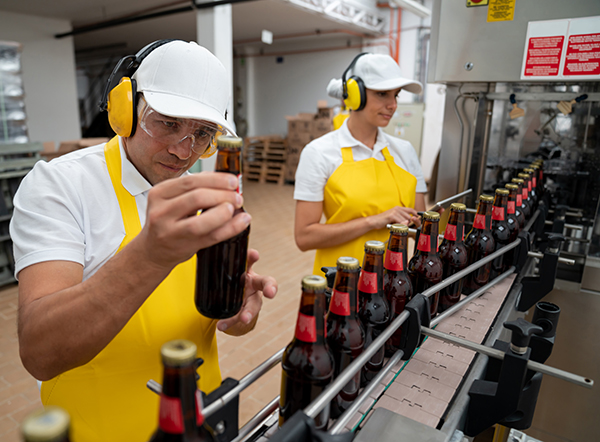The specialty food industry continues to wrestle with ongoing supply chain issues in the wake of the pandemic, driven by freight delays, ingredient out-of-stocks, and a tight labor market. These challenges can be further complicated when makers depend on co-manufacturers to produce their products. SFA News Daily asked three makers to share advice for navigating supply chain challenges while working with co-manufacturers.
The panel:
Ze Li, co-founder and chief operating officer, Yishi Foods, and Jesse McKee, director of supply chain, Yishi Foods
Todd Hoffman, chief finance officer, Chloe’s
Chitra Agrawal, founder, Brooklyn Delhi
Q: How can you mitigate against supply chain challenges when working with co-manufacturers?
Ze Li, co-founder and chief operating officer, Yishi Foods
Make sure your co-packer is willing to store (free or for a fee) raw materials and packaging for you, because it is very hard to synchronize the delivery of everything during a challenging time like this.
Talk to your co-packer to understand its enterprise resource planning system. Having the accurate count of your inventory in real time with comprehensive information (lot number, expiration date, etc.) will give you peace of mind.
When possible, try to have your co-packer order raw materials and packaging for you. As an emerging brand owner that cannot be on the site of your co-packer every day, having them do this will save you from a lot of troubles. You are still responsible for the quality of your products (and by extension, your raw materials). Visit the site as often as you can – pay attention to the conditions of their storage.
Build camaraderie with your co-packer when possible. During a challenging time like this, your copacker is going to be very busy and flooded with all sorts of requests. You would want to make sure your products are always on top of their mind.
Jesse McKee, director of supply chain, Yishi Foods
Your co-packer should be requesting a long-term production plan (6-12 months) from you to ensure they are analyzing capacity constraints and grouping material/packaging orders into larger bundles to leverage costs to your benefit. It’s not your co-packer’s responsibility to ensure that you have enough inventory to cover your sales; your inventory emergency will not be a priority for them, so be proactive with internal forecast analysis and build enough buffer to weather any sudden spikes in demand.
On that note, production delays can and will occur so, again, build that inventory buffer. If you’re not familiar with manufacturing/production, it would serve you well to visit the facility and really attempt to understand the specific bottlenecks that are encountered during your runs. Engage with the co-packer management team and see if any operations can be streamlined to gain efficiency or save money.
Todd Hoffman, chief finance officer, Chloe’s
We say it time and time again, but the biggest piece of advice we can offer is to listen to and respect your co-packer partners as if they were part of the organization. During COVID, we heard stories of how brands were demanding that co-packers produce for them, telling them about the challenges they were facing with retailers and how they were demanding product – but without ever listening to or trying to solve the problems and challenges they were facing. When you do this, your co-packers gain an understanding of how much you truly respect them and their operation. Listen to them when they make suggestions and ask how you can be better partners.
While it feels like such a no brainer, when we started Chloe’s as three people who were new to the industry, we didn’t know another way to work with co-packers other than as an integral cog in the organization – so we spent a lot of time listening and proactively asking for feedback on how we can do and be better. As a result, we were able to create strong relationships with all our co-packers. And in our experience, this trust and open dialogue has led to a greater degree of cooperation and support that has and continues to keep Chloe’s in stock during challenging times, like the pandemic, when other brands struggled with supply chain issues.
Chitra Agrawal, founder, Brooklyn Delhi
To mitigate risk during this time, we have negotiated contracts of annual volumes of ingredients and supplies with as many suppliers as we can. We also have revisited the trigger points on production and increased the amount of inventory on hand due to delays we are facing at our co-packers.
Related: Yishi Foods Gets Nationwide Launch Through Whole Foods; SFA's Spill & Dish Podcast: Bridging Two World's With Brooklyn Delhi's Agrawal.

